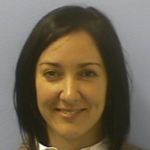Lien vers Pubmed [PMID] – 27272665
PLoS ONE 2016;11(6):e0156924
A surveillance study in 1996 identified the USA100 clone (ST5/SCCmecII)-also known as the “New York/Japan” clone-as the most prevalent MRSA causing infections in 12 New York City hospitals. Here we update the epidemiology of MRSA in seven of the same hospitals eighteen years later in 2013/14. Most of the current MRSA isolates (78 of 121) belonged to the MRSA clone USA300 (CC8/SCCmecIV) but the USA100 clone-dominant in the 1996 survey-still remained the second most frequent MRSA (25 of the 121 isolates) causing 32% of blood stream infections. The USA300 clone was most common in skin and soft tissue infections (SSTIs) and was associated with 84.5% of SSTIs compared to 5% caused by the USA100 clone. Our data indicate that by 2013/14, the USA300 clone replaced the New York/Japan clone as the most frequent cause of MRSA infections in hospitals in Metropolitan New York. In parallel with this shift in the clonal type of MRSA, there was also a striking change in the types of MRSA infections from 1996 to 2014.
